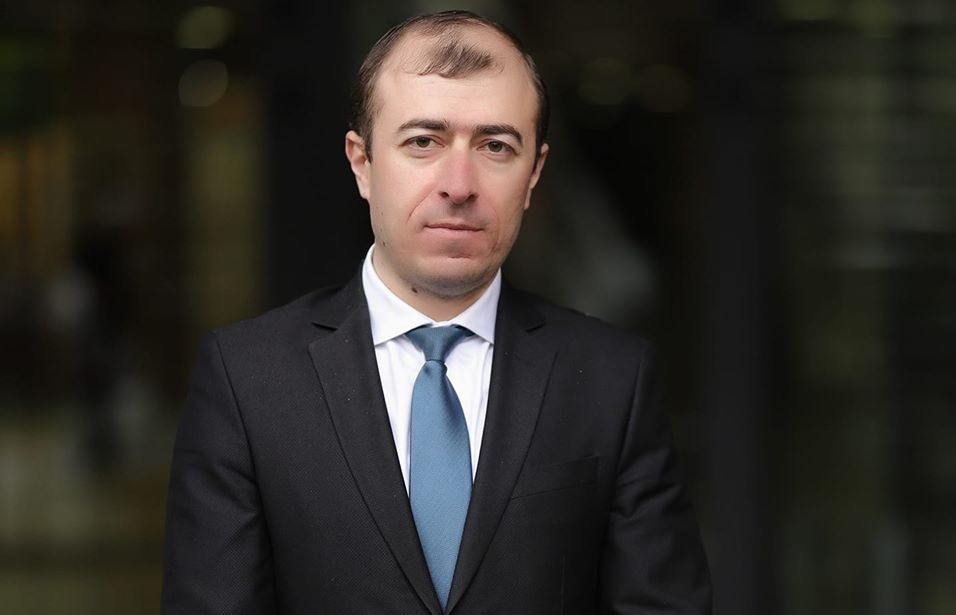
The State Commission for the Protection of Economic Competition (SCPEC) is studying the advertising market, and, of course, the media field.
SCPEC member Hayk Karapetyan says the goal is to get a complete picture, and many areas of research emerge when there is a need for collecting additional information.
The SCPEC will also meet with the editors to discuss the backlash against the campaign against free speech, and that this study is generally political pressure.
Hayk Karapetyan says that the reason is a misunderstanding about their work and a “clear, open discussion” during which concerns and suggestions will be heard. He wants this June 29 discussion to be effective not only for the study but for all other media companies.
And he insists, “We are only interested in the activities of the editorial offices, their participation in the advertising market.”
Why the need to study the advertising market? And when did you start doing it?
In January 2020, our committee began to study the provision of advertising services on television, radio and digital platforms to determine the competitive situation.
Up till that point, the commission had received complaints about possible competition issues for advertising.
There have been studies and proceedings, but they have been partial, and there has never been a complete and concise analysis of the advertising situation in the media.
The last complaint was in October 2019. No specific problem was found, but the commission unequivocally decided that it was necessary to study the entire advertising market.
As a result, the commission approved the decision.
And what kind of complaints were there? If you can, mention who was complaining.
For example, they complain that there is a subject with a monopoly or dominant position, which, using its competitive advantage, dictates its terms.
Or, there are subjects who, having an advantage in the TV advertising market, also have an advantage in digital platforms.
There are many complaints that there is a specific range of entities cooperating with each other, which dictates its terms to the whole market.
NGOs also did their own research and asked us to do more in-depth research.
But our study is not about complaints, but about revealing the overall competitive situation. For example, to find out what types of products are on the market, who are the participants in that market, what are the shares in that market, how does the one who has a dominant position behave? And in general, what is the advertising market and what is its volume, etc.?
We study the phenomenon more than the problems. Of course, we do not rule out that we may discover problems.
We study the market of advertising providers, advertising agents to understand who is working here, with whom they are collaborating, who has a competitive advantage or market power, and how it is expressed.
Advertising has a direct impact on the media field. Will the activities of the media be studied?
We are currently studying the advertising situation of television, radio and digital media, at this stage we have not touched upon print media and outdoor advertising.
And as a result, we will summarize the current situation in each segment.
The goal is to ensure a welcomed situation, and I think that the study will be crucial for market participants.
Journalism is a sensitive topic. There are already opinions and accusatory publications that the study has a political orientation. In other words, the goal is to revive the advertising market.
We are not conducting any studies related to journalism.
The commission also requested information from websites. Among them are websites that have nothing to do with journalism, they are a platform for placing advertisements.
For example, list.am?
Or similar sites dealing with buying and selling. In general, we consider all websites as a platform for advertising, we are not interested in their content.
Our study has no political overtones, and most of all this is not a political order. I officially deny such allegations.
According to the Constitution, SCPEC is an independent and autonomous body and has nothing to do with the state structure. Besides, the commission’s entry into the political process has neither meaning nor necessity. Nor is there such a possibility.
It is difficult to imagine how the market can recover with the tools of the commission. The commission cannot intervene in the market in such a way as to change the position of market players.
If during the course of the investigation facts are revealed that may contain violations, then there will be specific proceedings.
But at this stage, we are not even thinking in that direction. And we have no mechanism to influence the market.
For many years, the media has been considered a controlled area, there are many complaints that there is a monopoly and “black money.” In the last year, there have been a number of steps: Public TV has returned to advertising, a second sales house has been created, and an audit has been conducted in a rating company. Against this background, the SCPEC study seems to be in the same package.
Most of the processes you mentioned did not start at the time we started our study.
We will only get the picture of the market and a part of that will be presented to the public, of course, closing the information that is a trade secret.
And I can’t comment on how the other processes started, which have absolutely nothing to do with our commission and are going on in parallel.
The reason for our research was the proceedings posted on our website. We held hearings, meetings, raised issues and decided to study this market.
At what stage is the study and what are the obstacles?
We have applied to TV and radio broadcasting companies, legal entities serving websites, advertising agents, and rating companies.
We have already received most of the necessary information. Questions were raised by some companies, mainly web service providers, with which we try to work together in order to get a complete picture of the market.
There are media outlets that are not sure that their contracts containing trade secrets will not be published. And they don’t want to provide data on website visits, online contracts. How will that be protected?
The Law on the Protection of Economic Competition gives our commission the right to receive information, including confidential information.
The same law obliges us not to publish it, and in case of publication, to subject us to criminal liability.
There are also internal mechanisms in the commission that reduce or eliminate the risk of that information suddenly being published by individual members of the commission.
And there has never been a case when the trade secret of the business was published. Moreover, they are the businesses that have ten times more turnover and impact than businesses that serve websites. And in any publication, it could have a negative impact on both their reputation and their economic performance.
But they work with the commission, feeling insured.
That is, the leakage of confidential information is almost zero.
And we only demanded from the service providers the information that is needed to get a concise picture: the placement of advertisements, the subjects with whom there is cooperation, data on the ratings of companies.
This should be the basis for pricing and advertising in general to understand the entire chain. Naturally, site visits also affect ad prices.
It is also possible that the fact that we have applied to legal entities that are closed joint-stock companies in order to identify the owners (information about CJSCs is not available to us, unlike LLCs) can be exploited.
The move is aimed at identifying the interconnected companies in the market so that we can consider them as one entity in terms of protecting economic competition. In other words, their shares will be added.
It is said that this is a campaign against the media, and the commission is associated with the Prime Minister.
And I can’t understand the circumstances behind these assumptions.
However, if there is a perception that this is a campaign against the sector, by the same logic, research conducted in all sectors should be considered a campaign. Our committee conducts more than five such studies a year. For example, we are currently studying the mining industry.
And by that logic, then, it is a campaign against that sphere.
There are no closed and open doors in front of the commission, and the public does not decide where we can conduct research and where not.
Is the list of companies being studied pre-determined or can it be expanded?
In the case of TV and radio channels, such criteria are: They should be involved in advertising and broadcast in Yerevan or across the country.
For example, Public TV was not on our list, now it has the right to engage in advertising activities and should be included in the list.
The choice of sites is based on one criterion – the number of visits. This is an objective criterion, and the commission has selected high-traffic websites.
We do not rule out that the list could be expanded.
Many do not have a clear idea of what the study will look like, thinking that specific names and amounts should be published.
The study will list only the names of companies that have a dominant position and influence in the market.
And with that, those companies will become a subject of public study.
And the information about private companies will be reflected in summary form, in general numbers, without names.
Our targets are large monopolies or dominant companies.
Is it possible to initiate proceedings after the investigation?
Yes. Last year, for example, we studied the butter and sugar markets, and as a result, we have ongoing proceedings that are nearing completion.
But we do not rule out that a problem may not be revealed during the study.
Which companies are not providing the necessary documents and what is the reason?
Some businesses sometimes refuse to provide information. But the law also gave our commission the authority to use certain tools.
When the economic entity does not provide the required information to the commission, the commission is obliged to initiate proceedings to find out what the reason for it is.
If it is due to intentional, malicious actions, the commission has the right to impose financial sanctions (warning or fine of up to 5 million AMD).
And if it is due to negligence or improper organization of work, the commission informs about it.
But in any case, we must address the lack of information.
We have now written that we will receive the required information within 15 days. Of course, we will take into account the situation of the contagion, the distant working conditions, and if they apply to us, we will be supportive and extend the term.
Interview by Gegham Vardanyan


Add new comment
Comments by Media.am readers become public after moderation. We urge our readers not to leave anonymous comments. It’s always nice to know with whom one is speaking.
We do not publish comments that contain profanities, non-normative lexicon, personal attacks or threats. We do not publish comments that spread hate.